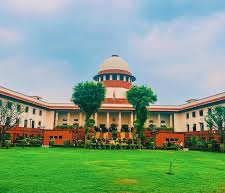
Maldives President Mohamed Muizzu’s recent visit to India shows a major shift in diplomatic relations between India and Maldives. His visit, when the Maldives is facing extreme financial crisis, after the defeat of pro-India candidate Sajith Premadasa in Sri Lanka’s presidential election, took place while Bangladesh is in political turmoil, and taking an anti-India stance. All these events are shifting the geopolitical landscape in South Asia. Muizzu wanted to solve the economic crisis of Maldives immediately, but his recent visit also showed that he was keen to repair ties with India, which had deteriorated since he became president in November 2023.
Economic Crisis as a Catalyst for Change
At the centre of Muizzu’s policy shift lie the Maldives’ acute economic difficulties. The country is facing a foreign exchange crisis as the amount of foreign reserves has declined to $ 440 million, barely enough to support six weeks of imports. That fragile financial situation easily reminds us of Sri Lanka’s recent economic collapse and the fear of being rebranded as a sovereign debtor. Credit rating agencies lowered their ratings for the Maldives, thus emphasising an immediate need for external aid. Here, India has emerged as a necessary friend. Muizzu managed to bag substantial support from India during his visit: a currency swap agreement worth $400 million and ₹3,000 crore of financial support. Prime Minister Narendra Modi termed India the closest neighbour and a steadfast friend, reaffirming the country’s commitment to standing by the Maldives during tough times to help regain the necessary economic stability.
A Shift from ‘India Out’ to Partnership
Muizzu’s visit signals a move away from his “India out” statements during his campaign. He now realises that maintaining close relations with India is crucial for improving the economy and maintaining internal security. In the bilateral dialogue, both leaders presented “A Vision for Comprehensive Economic and Maritime Security Partnership.” It promises cooperation in trade, digital technology and maritime security among others. Both leaders were expected to address other issues like piracy and drug trafficking together. The implications of this visit extend beyond bilateral relations, into the entire South Asian region. This adds complexity to the ongoing crisis in Bangladesh. Political instability and economic problems are likely to incite Dhaka to seek financial backing from India. Even the recently elected left-wing government in Sri Lanka might find itself swayed by this diplomatic realignment. Strengthening ties with the Maldives therefore sends out a distinct message to other neighbouring statements about India’s commitment to stability in the South Asian region.
A New Era of Cooperation
Security remains a top priority for both India and the Maldives. The Indian Ocean region is threatened by terrorism and plagued by illegal fishing. Both countries can improve their capacity to effectively deal with these issues through cooperation on maritime security initiatives. Muizzu’s government wishes to develop improved maritime monitoring capabilities with the help of India. Their cooperation not only strengthens the national security of the Maldives but also supports India’s strategic interest in maintaining stability within the Indian Ocean region. Muizzu’s visit to India indicates a new turning point in bilateral relations between the two countries. The launch of India’s RuPay card makes tourism easier and deepens economic collaboration. Importantly, funding infrastructure projects will upgrade the living standards of Maldivians. Muizzu nevertheless faces criticism at home for changing his policy towards India. His invitation to Modi to visit the Maldives next year reinforces his commitment and reflects a renewed partnership based on mutual respect and shared interests.
Conclusion
President Muizzu’s visit to India is more than a diplomatic exercise. It reflects strategic planning to achieve not only financial stability but also closer regional ties. This diplomatic realignment is way more than addressing short-term financial needs. By embracing cooperation with India, Muizzu’s government shows that the quest for resilience and prosperity requires cooperation with India rather than reliance on China. Amidst shifting international dynamics, this visit highlights the fact that sometimes reaffirming old partnerships can yield more sustainable solutions than undertaking politically motivated confontational policies.






Add comment